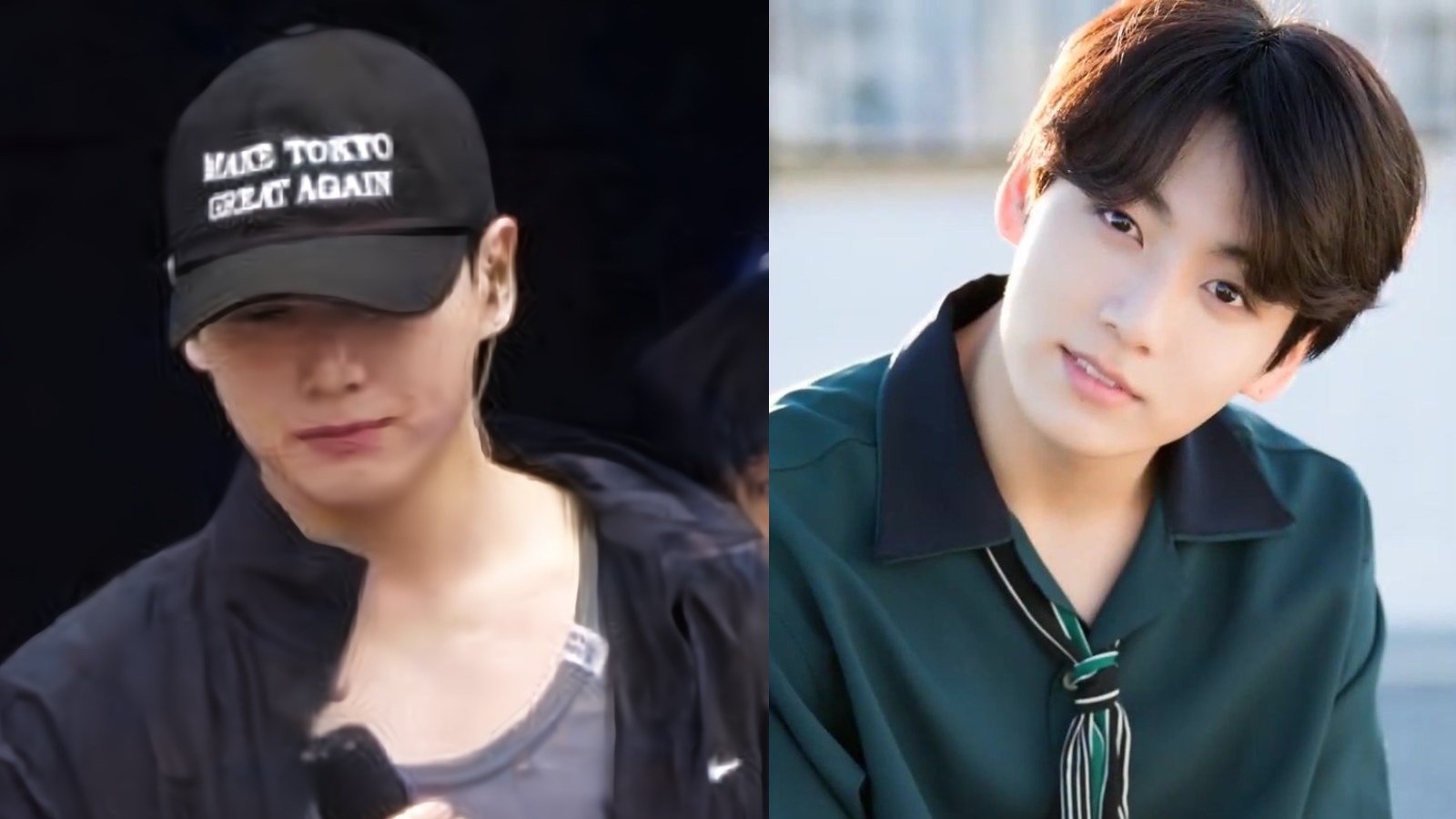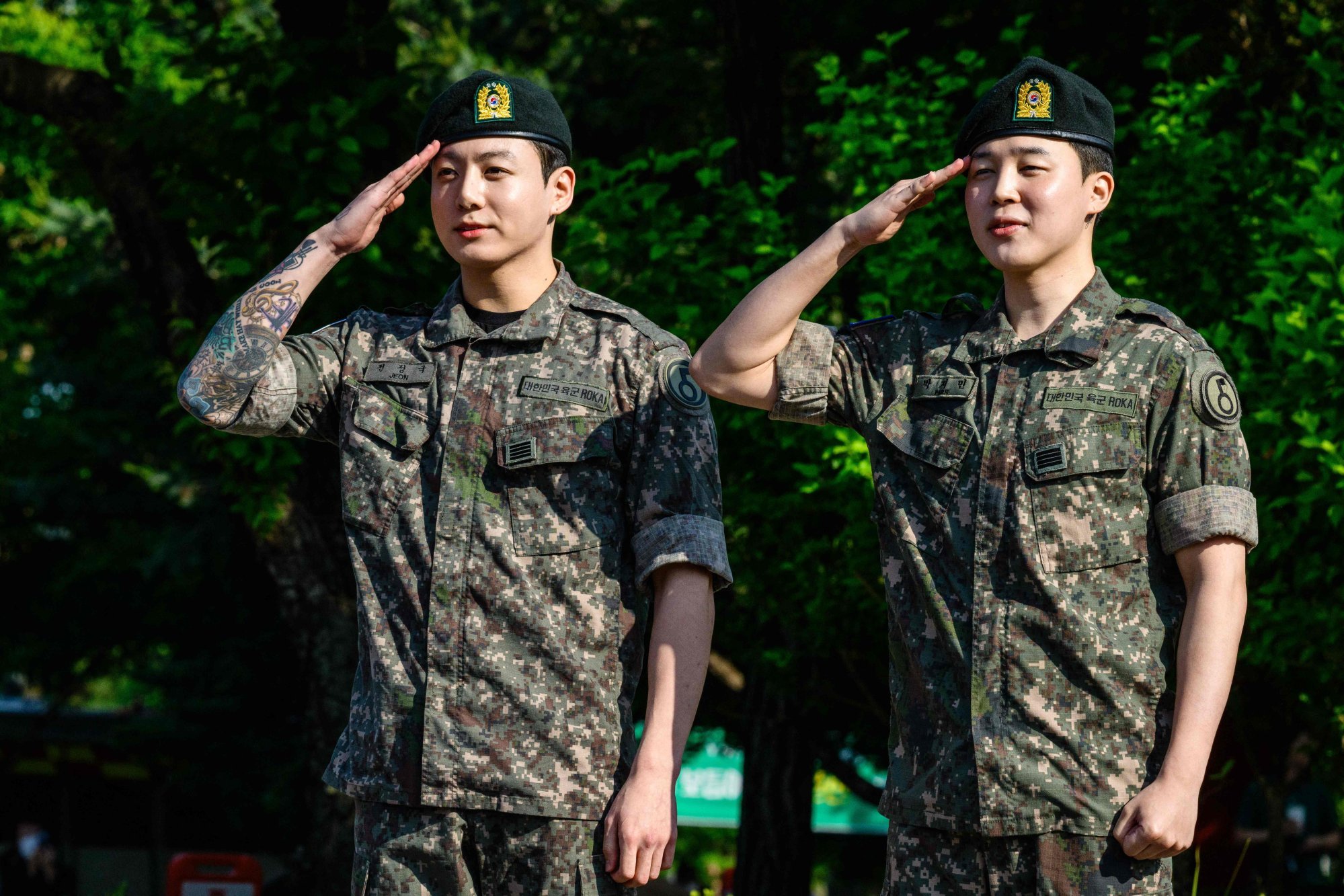BTS’ Jungkook apologises for wearing ‘Make Tokyo Great Again’ hat after backlash
The 27-year-old K-pop star said he was not aware of the hat’s historical and political significance

Jungkook, a member of the K-pop supergroup BTS, has issued a public apology after coming under fire from fans for wearing a cap with the slogan “Make Tokyo Great Again”, a phrase criticised for invoking painful memories of Japan’s colonial rule over Korea.
The 27-year-old K-pop star, who recently completed his compulsory military service in South Korea, was wearing the hat on Friday when he made a surprise appearance at rehearsals for the final performance of fellow BTS member J-Hope’s world tour in Goyang, according to the KoreaWave news website.
To many fans, the slogan – a play on former US President Donald Trump’s “Make America Great Again” campaign message, which has long been linked to nationalist sentiment – evoked bitter memories of Japan’s colonial rule over Korea from 1910 to 1945.
“I think this is JK expressing what he actually feels to Korea and Koreans without saying anything,” an irate user posted on the allkpop website. “I wouldn’t be surprised if he renounces his Korean citizenship and decides to domicile elsewhere, and South Korea will lose his tax revenue forever.”
Another added, “Straight from coming out of the military and wearing an anti-Korean, right-wing hat is an interesting choice, to say the least.”

Yet another post read, “He bought that stuff not knowing what it was? Wasn’t he in the military? How does he have such a lack of basic political and historical issues that concern his country? It’s the history of Japanese imperialist right-wing oppression.”
Facing growing outrage, Jungkook posted a statement on the fan interaction platform Weverse in the early hours of the following day.
“I sincerely apologise for disappointing and offending many people with the words on the hat I wore during rehearsal,” he wrote. “I take very seriously the inconvenience I have caused many people due to my carelessness in wearing it without fully checking the historical and political significance of the words.”
“There is absolutely no room for excuses, and this is the result of my own shortcomings and thoughtlessness,” he added. “I will endeavour to think and act more carefully in the future.”
The backlash also prompted a statement from Basicks, the Japanese brand behind the cap. Posting on social media, the company said: “We sincerely apologise to all those who have been inconvenienced.”
The company insisted the slogan had not been intended to convey a political stance, adding: “We believe in the freedom to express ideas through fashion. It symbolically expresses our hope for the prosperity of the Tokyo fashion industry.”
However, reactions to both apologies were mixed, particularly on Japanese social media, where some users downplayed the controversy.
“Who would have thought that wearing a hat to a rehearsal would cause such a fuss?” read one comment on the KoreaWave website.
“I do not know if there was a particular reason he wore the hat, but we know that Koreans always criticise,” another user wrote. “Korea is a country with a strong victim mentality.”
A third added, “Why do they need to even apologise? Someone always criticises everything. There’s no need to think so deeply.”
It is also not the first time a symbol linked to Japan’s wartime past has triggered international controversy. In 2018, the display of the country’s imperial rising sun flag – a former military emblem widely seen in Korea as a symbol of Tokyo’s colonial aggression – sparked several incidents involving international celebrities.
In one incident, a trailer for the film Bohemian Rhapsody drew online condemnation after a brief scene showed an actor playing Queen drummer Roger Taylor wearing a T-shirt depicting the rising sun design alongside Japanese characters meaning “famous”. Within hours, the clip was edited to replace the shirt with a plain red version.
Puerto Rican singer Ozuna also faced criticism after the rising sun flag appeared multiple times in his “Siguelo Bailando” music video, which was filmed in Tokyo.
Seo Kyoung-duk, a professor at Sungshin Women’s University in Seoul, told The Korea Herald that he had contacted Ozuna’s official Facebook and Instagram pages to raise the issue, calling the image a symbol of Japanese imperialist aggression comparable to the swastika.
Actor Steven Yeun, known for his role in The Walking Dead, became embroiled in controversy in May 2018 after “liking” a social media post showing director Joe Lynch wearing a T-shirt with the Japanese rising sun flag, a symbol many Koreans associate with wartime imperialism. He quickly apologised in both Korean and English.
Days later, a petition was filed with South Korea’s presidential Blue House calling for a ban on the flag, describing it as “a reminder of our country’s painful history and a product of Japanese imperialism.”